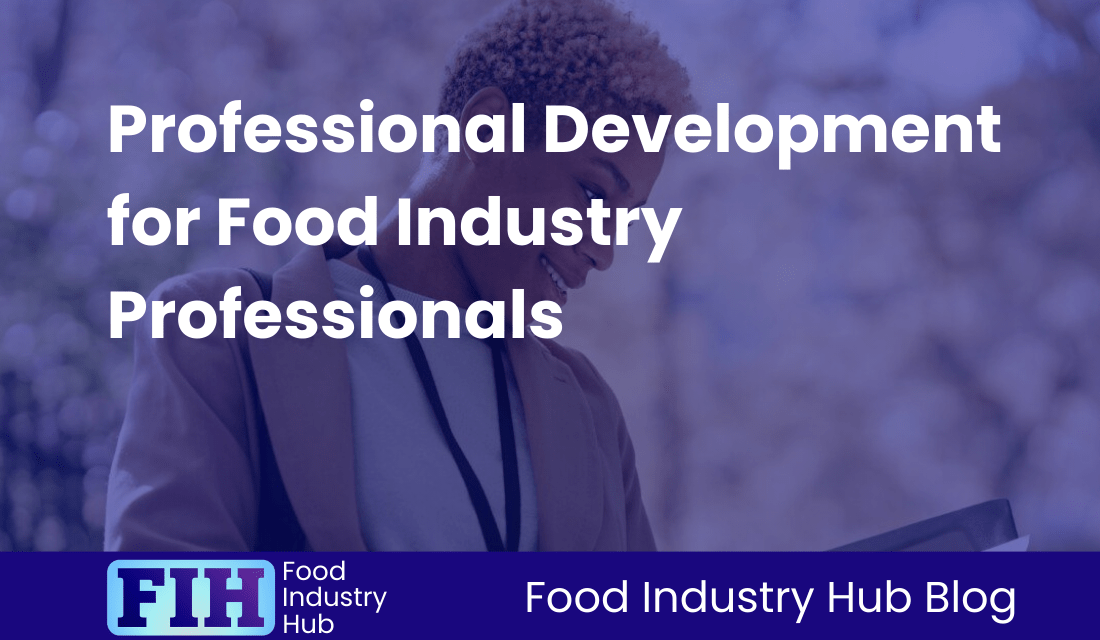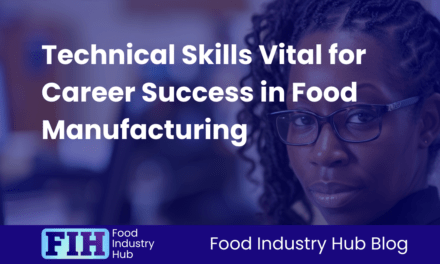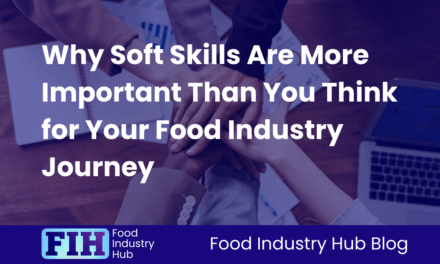Food industry professionals are constantly looking for ways to improve their knowledge and develop their skills. Professional development is an important part of staying ahead in this competitive field, as it can help food industry professionals stay up to date with the latest trends and practices. It is also a great way to get recognised by employers and peers alike. In this article, we will discuss the different types of professional development available for those working in the food industry, and the importance of engaging in such activities.
What Is Continuous Professional Development?
Continuous Professional Development (CPD) is the process of learning and developing new skills, knowledge, and expertise to stay up to date with industry trends and advancements. In the food industry, where consumer needs and expectations are constantly evolving, CPD plays a crucial role in keeping professionals informed about the latest practices, technologies, and regulations.
Food industry professionals can pursue CPD through various forms such as attending conferences, workshops or seminars; reading books or journals; participating in online courses or training programs; seeking guidance from mentors or coaches; or engaging in networking activities with peers. By continuously updating their knowledge and skills through CPD activities, professionals can enhance their career prospects while contributing positively to the growth of their organisations.
Continuous Professional Development is an essential process for staying relevant in today’s fast-paced world. For professionals involved in the food industry who are looking to advance their careers while keeping up with emerging trends and technologies that could affect their work output positively over time, so investing time into CPD becomes ever more paramount.
What Are the Continuous Professional Development Options Available to Food Industry Professionals?
Compared to come professions (like medical or educational), professional development in the food industry can seem somewhat unstructured. If you look at your career path as a series of steps that you take to reach your chosen destination (in this case, the ultimate goal of becoming an accomplished food industry professional), there are many different ways that you could accomplish this.
Education: Degrees and Certificates
For food industry professionals, obtaining a degree or certificate is an investment in their future. A bachelor’s degree in food science or nutrition can lead to a wide range of career opportunities such as product development, quality assurance, and regulatory compliance. These programs typically cover topics such as microbiology, food chemistry, and food safety.
In addition to bachelor’s degrees, there are specialised certificates available for those seeking to develop specific skills within the industry. For example, In the USA the Food Safety Preventive Controls Alliance offers a Preventive Controls for Human Food course that meets the requirements set forth by the FDA’s Food Safety Modernization Act (FSMA). This certification is mandatory for some positions within the industry and can also be beneficial for career advancement. In the UK, the Chartered Institute of Environmental Health offers the Certificate in Food Safety and Hygiene, which is recognised by the FSA. Further education is available for those who wish to pursue careers as food safety managers or supervisors. The Food Standards Agency itself offers a range of free courses such as allergen training and root cause analysis.
Professional qualifications such as HACCP (Level3, Level 4, etc) or Lead Auditor are also available. It is a good idea to consult your local food safety authority and/or professional organisations for information on further training opportunities in your area. Targeted qualifications such as these can present mandatory selection criteria for certain positions, so obtaining relevant qualifications may provide you with a competitive edge in the job market.
Pursuing education through degrees and certificates shows employers a commitment to professional growth and development within the field. It not only enhances knowledge but also opens up new opportunities for career advancement in the competitive job market of the food industry.
Networking Groups and Associations
Networking groups and associations provide excellent opportunities for professional development in the food industry. These organisations bring together professionals with similar interests, skills, and goals to exchange knowledge, ideas, and experiences. By joining a networking group or association, individuals can expand their network of contacts, learn about industry trends and best practices, access training and educational resources, and enhance their leadership skills.
One of the benefits of networking groups is that they allow professionals to connect with others who are facing similar challenges in their work. For example, members may discuss supply chain disruptions, new technologies, or share strategies for reducing food waste. Networking groups also offer a platform for members to showcase their expertise by presenting at conferences or webinars.
Associations often offer specialised certifications that demonstrate competency in specific areas of the food industry such as food safety or sustainability. These credentials can boost an individual’s career prospects by demonstrating a commitment to ongoing learning and development. Participating in networking groups and associations is an excellent way for food industry professionals to stay up to date on emerging trends while building meaningful connections within the industry.
Sign-up for the Food Industry Hub Mail Service
We regularly produce new content for food industry professionals, and the Food Industry Hub Mail Service is the best way to stay up to date with the latest additions.
Signup today to be added to the Food Industry Hub mailing list.
Online Learning Resources
For food industry professionals, learning is an essential part of professional development. Online learning resources have become a popular option for busy professionals who want to improve their skills and advance their careers without sacrificing work-life balance. There are many online platforms that offer courses, webinars, and certifications on various topics related to the food industry.
One of the most popular online learning platforms for food industry professionals is Coursera. This platform offers courses from top universities around the world on subjects such as food safety, nutrition, and sustainable agriculture.
Online learning resources not only provide flexibility but also allow individuals to learn at their own pace and convenience. With a wide variety of options available, it has never been easier for food industry professionals to stay up to date with the latest trends and advancements in their field while enhancing their skill set at the same time.
Experience and Exposure
In the food industry, experience and exposure are key factors in professional development. Aspiring food professionals need to gain hands-on experience and exposure to different areas of the industry to become well-rounded experts. One way to gain experience is through internships, apprenticeships or work placements in various establishments such as restaurants, catering companies or food production facilities. These opportunities offer practical learning experiences that cannot be found in a classroom setting.
Exposure is also crucial for professional development as it allows individuals to learn about new trends, techniques, and products in the industry. Attending trade shows or conferences can provide an excellent opportunity for networking with established professionals while gaining insights into emerging trends and innovations.
Professional development requires continuous learning and growth through gaining experience and exposure. The food industry offers numerous opportunities for aspiring professionals seeking to further their careers with hands-on experiences, networking events and competitions that help them expand their knowledge base while building relationships with other like-minded individuals within the field.
Many job advertisements specify key skills and experiences from previous roles that are required for consideration as a candidate. Opportunities to carry out different tasks and accumulate professional achievements can really accelerate career progression and help individuals reach their maximum potential. Professionals working in the food industry should intentionally seek out these opportunities in order to develop these skills, while being aware of the impact they can have on their professional development. Speaking to your line manager about what you can do to support the business and develop your skills is a good place to start. Taking on additional responsibilities at work can really help you to stand out from the crowd and ensure that your career development remains on track. Not only does this allow you to build skills and valuable experiences, but pursuing opportunities to contribute to a variety of aspects of the business can also help you to understand how your role fits into the bigger picture and demonstrate a proactive attitude.
In Summary
You are responsible for your own career success. In the food industry, professional development is crucial for career success. It’s important to take ownership of your own career and invest in your growth. This means taking the initiative to seek out new learning opportunities, attending industry conferences and events, and networking with other professionals.
One way to ensure your success is by setting goals for yourself. Whether it’s obtaining a new certification or taking on a leadership role within your organisation, having clear objectives can help guide you towards achieving the next steps in your career.
Lastly, remember that no one knows your strengths and abilities better than you do. Don’t be afraid to advocate for yourself when it comes to promotions or job opportunities. By being proactive in advancing your career, you’ll not only benefit yourself but also contribute to the overall success of the food industry as a whole.














